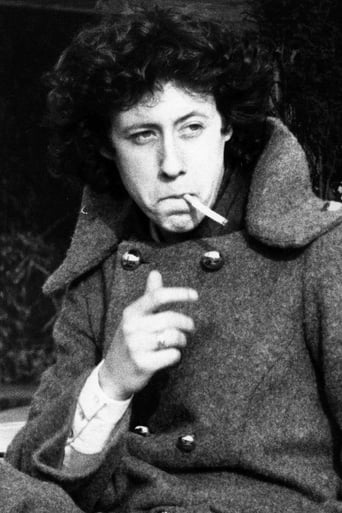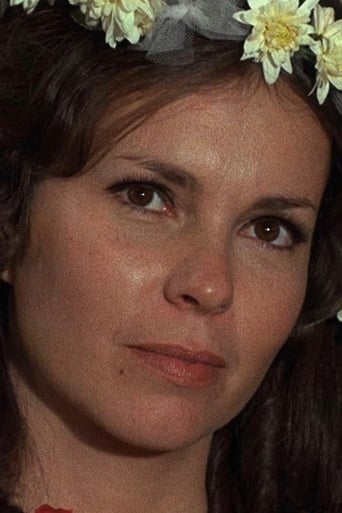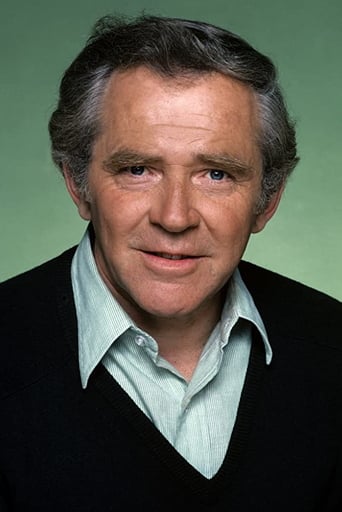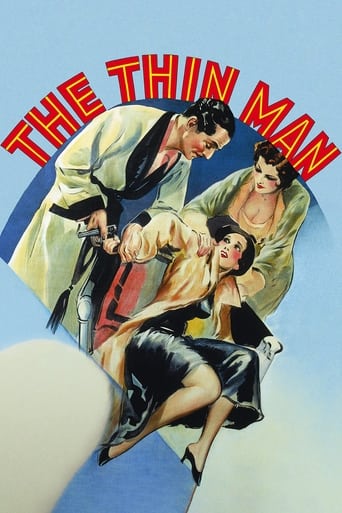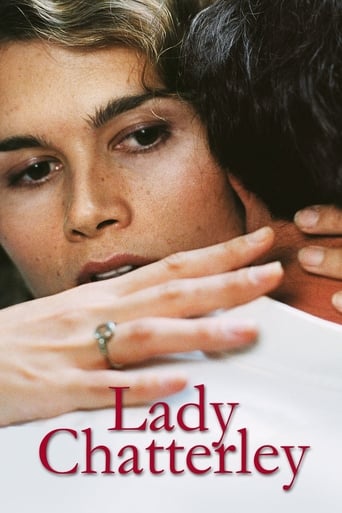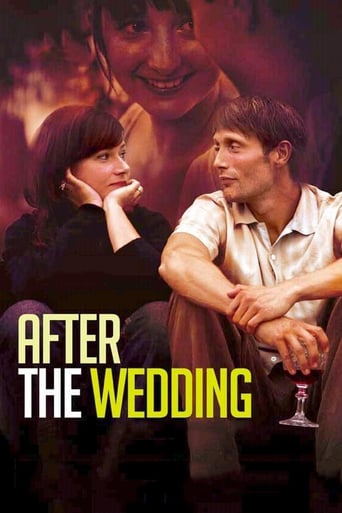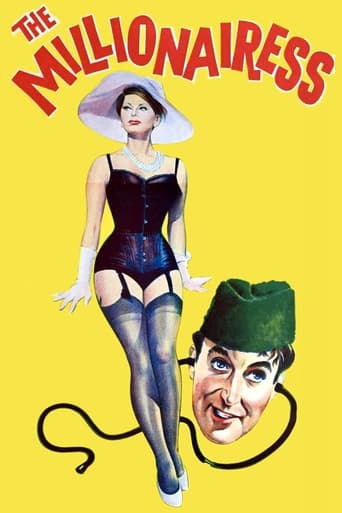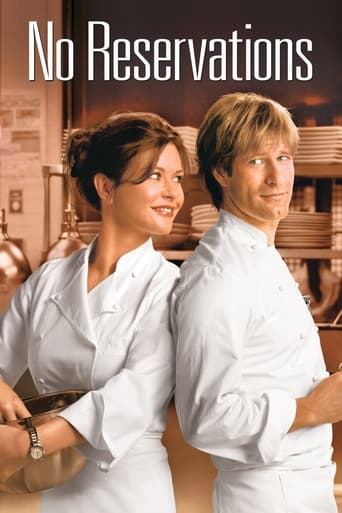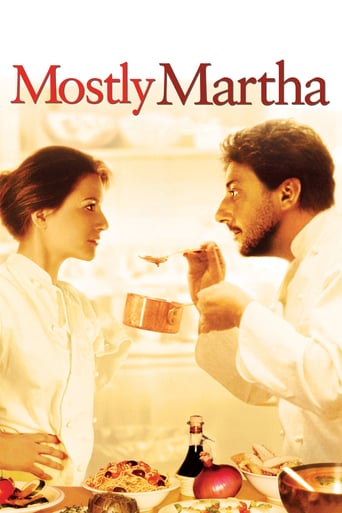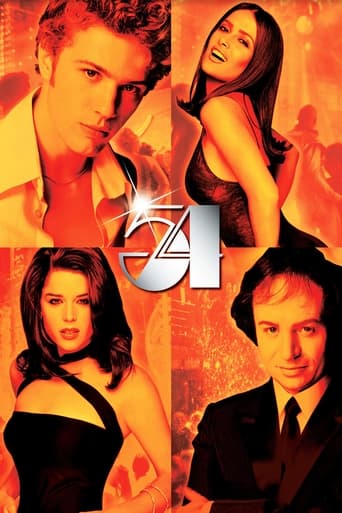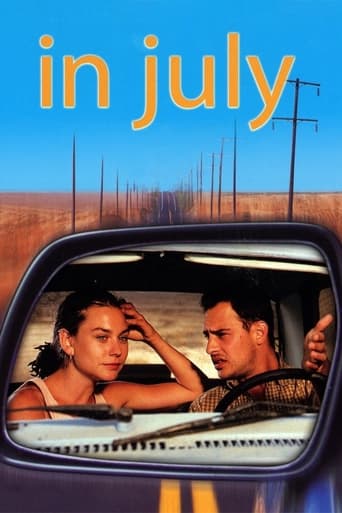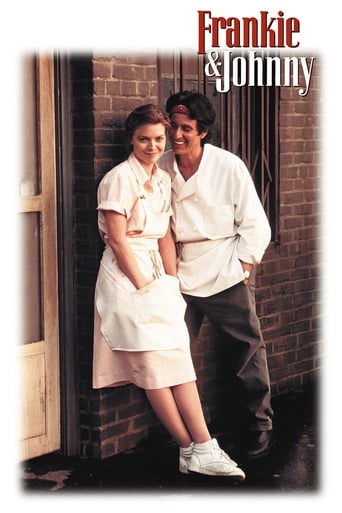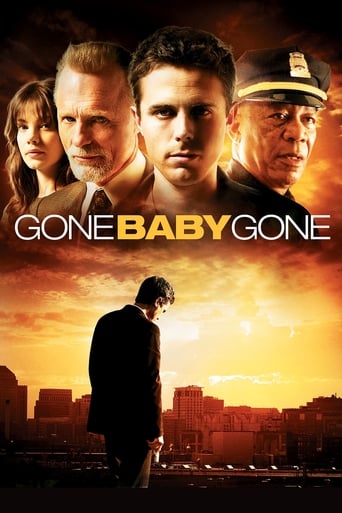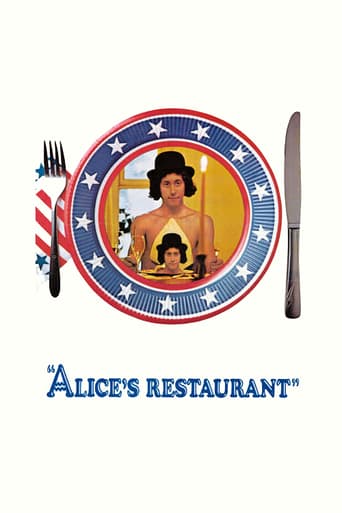

Alice's Restaurant (1969)
After getting kicked out of college, Arlo decides to visit his friend Alice for Thanksgiving dinner. After dinner is over, Arlo volunteers to take the trash to the dump, but finds it closed for the holiday, so he just dumps the trash in the bottom of a ravine. This act of littering gets him arrested, and sends him on a bizarre journey that ends with him in front of the draft board.
Watch Trailer
Cast


Similar titles
Reviews
Unshakable, witty and deeply felt, the film will be paying emotional dividends for a long, long time.
There's no way I can possibly love it entirely but I just think its ridiculously bad, but enjoyable at the same time.
The movie turns out to be a little better than the average. Starting from a romantic formula often seen in the cinema, it ends in the most predictable (and somewhat bland) way.
The story, direction, characters, and writing/dialogue is akin to taking a tranquilizer shot to the neck, but everything else was so well done.
I remember like it was last week. We all went to the old Visualite Theater in Charlotte and saw it. I have nearly no memory of it at all, except the song and Arlo G. singing and the Woody characterI recall nothing else at all about the plot or how it was directed.I just stumbled across the movie watching TCM.Next Sunday ! plan to ask our minister to re-apply our vows. Wife and I have been through a lot of stress and uncertainty lately.
Arthur Penn seems to portray the hippie culture in a very honest light. He doesn't directly appeal to the opinion of mainstream America, or the establishment "square" opinion of the counterculture, but rather appeals to the counterculture itself in the form of a cautionary tale. In Alice's Restaurant, he does not poke fun at and satirize the hippie culture like in I Love You, Alice B. Toklas!, nor does he dramatize it and glorify it like in Easy Rider. Instead, the hippie culture is portrayed in a series of events much like real life experiences of real hippies. At first, the youth gravitated towards the hippie culture and the commune system for its freedom, sexuality, and drug-use. However, as time wore on, the commune ideal began to crumble like many other communist societies do- hippies begin to realize they are leeches on society, and in their valiant efforts to 'stick it to the man,' they incidentally remain reliant on the establishment to live. Alice's restaurant portrays the joys of commune life. In two particular scenes- the Thanksgiving dinner and the final marriage ceremony- life as a hippie is free, careless, and exciting. Everyone is happy and relaxed, there are no problems, and they can freeload all they want. This appealed to many people in the counterculture, and the film even reinforced these sentiments. However, it also appealed to the establishment's ideals. In one scene, Arlo is thrown out of the window of a restaurant for having long hair, as long hair is the stigma of the counterculture movement. This reflects some of the violence of the establishment against the hippies, and demonstrates the daily struggles of being a member of the counterculture. This may have portrayed the establishment as evil and hateful, however by the end of the film, the opinion of the establishment is subtly expressed.As the film progresses, the audience begins to realize the pitfalls of the commune system. One member of the commune falls victim to drug addiction, and overdoses on heroin. His death shows a dark side of the counterculture that is rarely expressed- drugs can be a gritty and terrible thing, and with freedom comes much responsibility to keep such addictions at bay. Free love and drug use may be fun and care-free for awhile, but drug overdose and the epidemic of STDs clearly show that there are consequences for such a lifestyle. Also, on a much more subtle level, in the last shot of the film we see Alice longingly staring at the camera after Arlo has just left the commune. This takes place just after the marriage ceremony, which was the last effort of Alice's husband, Ray, to reinforce the commune ideal. As Ray romantically expresses his ideas of somehow opening another commune, Alice begins to realize the ultimate flaw of the counterculture, and despairingly awaits what will be come a terrible, fruitless marriage. Opening more communes certainly will not fix the problems of the current one- yet it is a common idea expressed by many communistic societies on the brink of destruction. If just one more- one more- commune were to be built, everything would be fine. Every commune begins well, but all suffer the same fate. Ultimately the members of the counterculture are freeloaders on the establishment society, and cannot survive once all resources have been used up in one place. Another commune in a different location may solve the problem momentarily, but unless the commune lives off the land and becomes self-sustaining, it will always fail. This is the limitation of the hippie culture, and this is exactly why such an alternative lifestyle is no longer widely existent today in America. It burnt itself out- and Arthur Penn offers this forlorn prediction in that final shot. Everything has fallen apart, Arlo has given up the commune life for the time being, and Ray is desperately grasping at straws to keep it together and stay sane and happy. Even though Alice has a Restaurant, and a way to make money, ultimately the very hippies they surround themselves with in the commune will suck it dry and move on. In Alice's Restaurant, the counterculture is revealed for what it truly is- fun, refreshing, and irresponsible. The "squares" may not have any fun, but they get things done. Ultimately, the establishment, with all its lousy rules and regulations, stigmas and dogmas, was right- and Penn did an excellent job of gently telling this to the counterculture. The hippie youth went to see the film and surely enjoyed it, but most likely left the theatre with a slight unease and a nagging sense of dread.
1969 was a turning point in American history. And this film is still living on the hippie dream, on the flower kids and their illusion that life is nothing but music and fun. Even the war and the draft are made small and insignificant, as if you could escape the draft because you had been arrested, tried and convicted of a crime like littering. Why not jaywalking? 1969 was the arrival of Nixon, the invasion of Cambodia, after the Tet offensive, escalation and blindness among all political personnel or politicians. The film thus is a full nightmare in disguise as a freewheeling period of complete enjoyment and happiness, wedding and champagne added as a reward for your trust in the future. And yet the film is a tremendous satire of that very short-sighted and careless spirit. Every detail is symbolical and metaphorical. Arlo Guthrie's girl friend looks very Vietnamese, a symbol of the war going on that no one wants to see. The church that is sold is also the symbol of the loss of faith and legitimacy in the US. Everything is just running down and away. And that is crowned at the end by this very last scene where Alice and Ray are literally abandoned by Arlo and Mari-chan, and Alice is not standing in any Wonderland then, but in her wedding dress, early in the sunless morning on the front steps of the church of hers, unmoving and silent in a world where there is a light breeze that makes her veil float slightly, both the veil and its shadow on the church wall, and Alice and the church are captured by the slowly moving camera following some circle whose center is Alice herself and every so often a tree trunk goes by in the picture, and the whole church is surrounded by a complete waste land, all dirt and no grass, brown and muddy. The church itself looks unkempt and its paint seems to be more or less starting to scale. A world abandoned and being wasted, wrecked, dumped along the way of history that is going to come, a vision we can imagine bleak and sad, tearful and fearful, frightening and full of pain. There is like some nostalgia at that time about a good old world that has vanished in thin air and will never be back. See you, bye bye, forever. That was a time when the United States, for the first time in their history, had met an obstacle they could not negotiate. And today this past vision is becoming so premonitory of the forty years it will take for hope to come back in time to be able to assume the changing world in which the US are no longer to be number one and yet when they can recapture some leadership provided they accept to share responsibilities and resources. That idea of sharing definitely was not in the air in 1969 and the dissatisfied young people could only dream of a freewheeling enjoyment of what was at their disposal without any effort of any kind. And the vice-principal of my high school was telling us in the car that took us to the Teachers' Union state convention in Charlotte, North Carolina, how a simple atom bomb on Hanoi or ,Haiphong would bring in victory. The higher the monkey climbs in the tree You know the second part of the saying I guess, if not go and check in Sri Lanka, for instance, what you can see when the monkey is going up into the tree leaving you on the ground, your eyes rising slowly to follow the butt sight of the acrobatic animal.Dr Jacques COULARDEAU, University Paris Dauphine, University Paris 1 Pantheon Sorbonne & University Versailles Saint Quentin en Yvelines
This movie changed my life. The whole lifestyle of the people, always looking out for one another just really made me think. It depicts the harsh reality that the young free spirit long hair society had to live in, yet always keep the bright side of things. It shows how even with all the peace love and happiness, the pressure of the world can make you crumble, and break down. It shows the transition from the people of the depression to the hippies. It has my favourite billboard campaign ever. And I wish i could get a picture, the whole "Keep America Beautiful, Cut your Hair" Idea. There was one scene that brings a tear to my eyes, when they are in the cemetery and the one girl is playing Joni Mitchel's Song to aging children. It just moved me. Definitely worth watching again and again. On another note, apparently, you would want to look into this, but the Trinity Church that Ray and Alice live in is still around and is like a shrine type thing now. Also apparently, I don't know the truth to it but Arlo still plays there now and then, which wouldn't surprise me because he still plays, he's playing a 38th anniversary for Woodstock on August 15th 2007, at the original site of Woodstock in Bethel.


